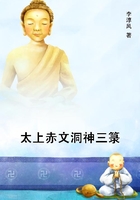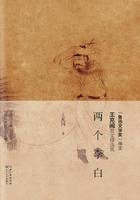for it treated of the death of the great philosopher who had so studiously avoided using his pen on melancholy themes. In those days all Russians with any pretensions to literature read nothing but Voltaire, and when they had read all his writings they thought themselves as wise as their master. To me they seemed pigmies mimicking a giant. I told them that they ought to read all the books from which Voltaire had drawn his immense learning, and then, perhaps, they might become as wise as he. I remember the saying of a wise man at Rome: "Beware of the man of one book." I wonder whether the Russians are more profound now; but that is a question I cannot answer. At Dresden I knew Prince Biloselski, who was on his way back to Russia after having been ambassador at Turin. He was the author of an admirable world on metaphysics, and the analysis of the soul and reason.
Count Panin was the tutor of Paul Petrovitch, heir-presumptive to the throne. The young prince had a severe master, and dared not even applaud an air at the opera unless he first received permission to do so from his mentor.
When a courier brought the news of the sudden death of Francis I., Emperor of Germany and of the Holy Roman Empire, the czarina being at Czarsko-Zelo, the count minister-tutor was in the palace with his pupil, then eleven years old. The courier came at noon, and gave the dispatch into the hands of the minister, who was standing in the midst of a crowd of courtiers of whom I was one. The prince imperial was at his right hand. The minister read the dispatch in a low voice, and then said:
"This is news indeed. The Emperor of the Romans has died suddenly."
He then turned to Paul, and said to him,--
"Full court mourning, which your highness will observe for three months longer than the empress."
"Why so?" said Paul.
"Because, as Duke of Holstein, your highness has a right to attend the diet of the empire, a privilege," he added, turning to us, "which Peter the Great desired in vain."
I noted the attention with which the Grand Duke Paul listened to his mentor, and the care with which he concealed his joy at the news. I
was immensely pleased with this way of giving instruction. I said as much to Prince Lobkowitz, who was standing by me, and he refined on my praises. This prince was popular with everyone. He was even preferred to his predecessor, Prince Esterhazy; and this was saying a great deal, for Esterhazy was adored in Russia. The gay and affable manner of Prince Lobkowitz made him the life and soul of all the parties at which he was present. He was a constant courtier of the Countess Braun, the reigning beauty, and everyone believed his love had been crowned with success, though no one could assert as much positively.
There was a great review held at a distance of twelve or fourteen versts from St. Petersburg, at which the empress and all her train of courtiers were present. The houses of the two or three adjoining villages were so few and small that it would be impossible for all the company to find a lodging. Nevertheless I wished to be present chiefly to please Zaira, who wanted to be seen with me on such an occasion. The review was to last three days; there were to be fireworks, and a mine was to be exploded besides the evolutions of the troops. I went in my travelling carriage, which would serve me for a lodging if I could get nothing better.
We arrived at the appointed place at eight o'clock in the morning;
the evolutions lasted till noon. When they were over we went towards a tavern and had our meal served to us in the carriage, as all the rooms in the inn were full.
After dinner my coachman tried in vain to find me a lodging, so I
disposed myself to sleep all night in the carriage; and so I did for the whole time of the review, and fared better than those who had spent so much money to be ill lodged. Melissino told me that the empress thought my idea a very sensible one. As I was the only person who had a sleeping carriage, which was quite a portable house in itself, I had numerous visitors, and Zaira was radiant to be able to do the honours.
I had a good deal of conversation during the review with Count Tott, brother of the nobleman who was employed at Constantinople, and known as Baron Tott. We had known each other at Paris, and afterwards at the Hague, where I had the pleasure of being of service to him. He had come to St. Petersburg with Madame de Soltikoff, whom he had met at Paris, and whose lover he was. He lived with her, went to Court, and was well received by everyone.
Two or three years after, the empress ordered him to leave St.
Petersburg on account of the troubles in Poland. It was said that he kept up a correspondence with his brother, who was endeavouring to intercept the fleet under the command of Alexis Orloff. I never heard what became of him after he left Russia, where he obliged me with the loan of five hundred roubles, which I have not yet been able to return to him.
M. Maruzzi, by calling a Venetian merchant, and by birth a Greek, having left trade to live like a gentleman, came to St. Petersburg when I was there, and was presented at Court. He was a fine-looking man, and was admitted to all the great houses. The empress treated him with distinction because she had thoughts of making him her agent at Venice. He paid his court to the Countess Braun, but he had rivals there who were not afraid of him. He was rich enough, but did not know how to spend his money; and avarice is a sin which meets with no pity from the Russian ladies.
I went to Czarsko-Zelo, Peterhoff, and Cronstadt, for if you want to say you have been in a country you should see as much as possible of it. I wrote notes and memorandums on several questions with the hope of their procuring me a place in the civil service, and all my productions were laid before the empress but with no effect. In Russia they do not think much of foreigners unless they have specially summoned them; those who come of their own account rarely make much, and I suspect the Russians are right.















